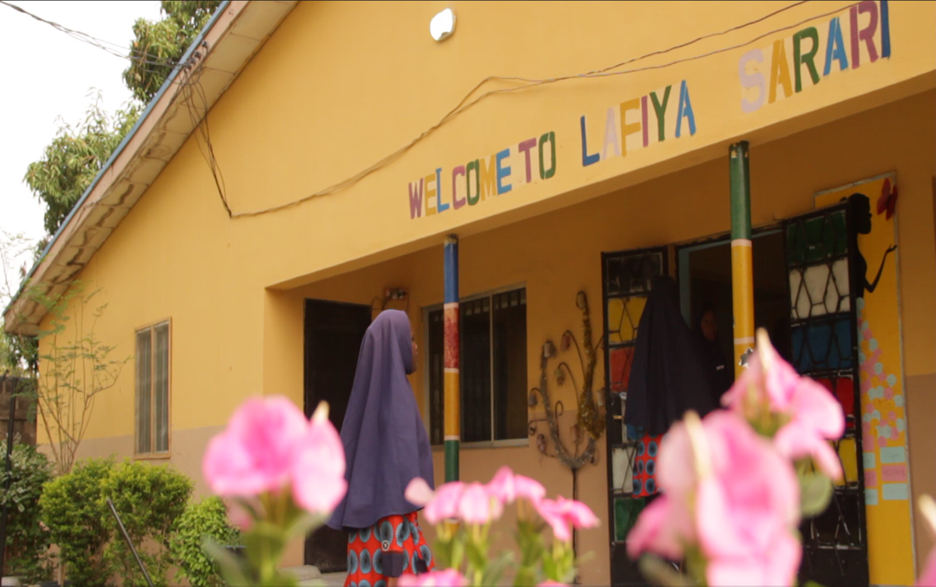In the aftermath of the decade-long insurgency in Northeast Nigeria, the lives of many have been upended. Displacement, loss, and a shattered sense of normalcy have taken a toll on communities in the region. Perhaps the most affected are young girls who have been deprived of the opportunity to access education. However, amidst the devastation, the Lafiya Sarari initiative has emerged as a beacon of hope for many girls in the region.

“When I got into the Lafiya program, I couldn’t read or write, but now I can confidently express myself in writing and speech. I’m also able to teach my siblings and members of the community to do the same. This would not have been possible without the opportunity given to me by Lafiya Sarari,”
Binta, a beneficiary of the Lafiya Sarai program
Survivors of Terror
According to the United Nations Children Fund, UNICEF, there are millions of children who have been affected by the over 1-decade long conflict in the Northeast. Many of these children have not been inside the fore walls of a classroom in their lives while several among those who have can neither read nor write. Also, a staggering 1,400 schools have so far been destroyed in those schools leaving many without access to education.
The impact of this situation on girls has been rather catastrophic with over 60 percent of out of school children in the Northeast being girls. While there have been several efforts by government and private bodies to address this challenge, the situation hasn’t exactly been eliminated. The harrowing experiences many of these children have had to face during the insurgency further highlights the importance of a special approach to teaching and learning for them.
A different approach to girl-child education
The Lafiya Sarari program is not just another school. It is a holistic approach to education that recognizes the mental health and psychosocial needs of its beneficiaries. Many of the girls who benefit from the program are survivors of insurgency and have experienced unimaginable trauma.
“Our beneficiaries have been with us since 2017, some of them trekked all the way from Bama and Mafa LGAs to Maiduguri to survive. Some lost their parents, some lost caregivers, so when they came into the program, they were highly traumatized with signs of anxiety, depression, PTSD, Insomnia, hallucination, etc.,”
Hauwa Abdullahi Zaifada, a counselor at the school.
The program addresses the mental health and psychosocial needs of its beneficiaries through counselling, psychoeducation, and coping strategies. By providing a supportive learning environment, the girls are empowered to focus on their studies and build resilience. The results speak for themselves. Girls who were once unable to read or write are now confidently expressing themselves in writing and speech. They are teaching their siblings and members of their communities to do the same. The program has not only helped the girls achieve academic success but also provided them with skills that are crucial for success in life.
The Lafiya Sarari initiative is more than just a school; it is a community. A walk through the gates of Lafiya will reveal the level of attention that has been put into ensuring every single detail of the project is accurate. The school adopts a well thought out approach to instil knowledge, morals, and discipline into the students. It is a place where the girls feel safe and supported.
Lafiya, the tomorrow once talked about!
The Lafiya Sarari program is a shining example of what can be achieved when communities come together to support each other. By prioritizing the mental health and psychosocial needs of its beneficiaries, the program is breaking down barriers to education and empowering girls in Northeast Nigeria. The success stories of girls like Binta show the incredible impact that the program is having. It is a testament to the resilience and determination of the human spirit.
